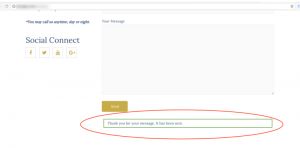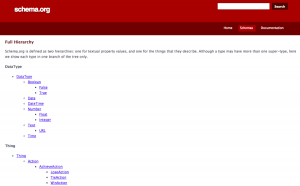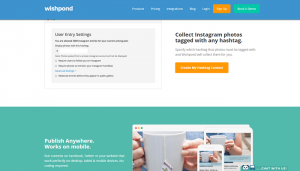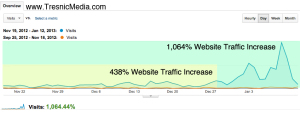Website prices can vary wildly from free, to millions of pounds. The range and variation of production, functionality, design, and performance are pretty darn incredible. But it all depends on what you need your website to do for your organisation. This article focuses on how to budget for a typical medium to large B2B business website.
Don’t Choose the Wrong Vehicle
Getting the most value for your budget can seem like a gargantuan challenge, and one, if it goes wrong, that could cost the business dearly. So, before you get started on a project like this, you’ve no doubt been searching for articles about how to budget for your next website, and you’ve found yourself here. Thank goodness, because below is a run-down of our best advice for this very thing.
Websites vary massively. Like cars, all websites have the same recognisable parts that make it work; a wheel at each corner and windows you can see through. This does not mean that they are all alike. A go-kart is not like a Bugatti.
A bespoke website created for your business needs to deliver your business results. And it is most definitely not going to be a free template site set up by your neighbour’s teenager.
A business website needs to be connected to data and it needs to be secure. It needs to generate leads for your sales team. It needs to manage customer service and support. It may even need to be connected to your BI data and dashboard. This is where the expertise of a specialist website agency can make all the difference. A good agency will know exactly what questions to ask you to not only deliver a site that reflects your brand and delivers what you need but also help you to work transparently within a budget. The last things you need are hidden costs or extras that are going to make your life even harder.
So what choice is out there?
Here’s a brief overview of the general ‘build me a website’ landscape. All of these are viable options for getting a website done. But, if you are looking to create – a high-performing, technically competent, stable, secure and sales generating business website – then the last one is your ultimate option.
Website Builders like Wix, Weebly or Squarespace
For small businesses with simple needs, this presents a good option. It can cost you anywhere from about £8 to £120 a month depending on the package you opt for and includes domain name fees and hosting. You build from a template and make minor tweaks to the way the site functions. This is a super low-cost way of getting a website live. However, the restricted world of the template-website-builder doesn’t suit many (if any) serious businesses. Although it’s a good way to get an idea off the ground and can be used for swift idea prototyping. Like testing an idea on the marketplace to measure its potential, for example – a business MVP (Minimum Viable Product).
Micro-agency
This can be anything from a solo person working from their spare room, to a mini team of a designer and a developer working together. And there are literally thousands of micro-website-agencies. They do a really good job of designing and building a business website. You could be looking at a project of around £3,000 – £5,000 with a micro-agency. What they lack in scale they make up for in enthusiasm and fresh ideas. However, when it comes to serious B2B websites, scale is a serious issue. A typical medium-sized business website will take months to organise, plan, create, develop and launch. And your typical micro-agency simply isn’t going to be able to cope with the scale of the project or the support and security required after launch. In fact, they could get swamped by just the UAT review inquiries coming back from your team alone.
Traditional design agency – that also does websites
Almost any design agency is going to say they can design and build a website for your business. But can they really? We say this because, in our experience, the image and story told on some web agency’s websites is not always the truth. That’s not to say they are all lying. It’s more a piece of advice for you to dig deeper and find out what their actual in-house capabilities are. If they don’t have an internal team of front-end and back end- developers. Or they don’t have raw creative and user interface designers. Or they don’t have a specialist website Project Management team. Then, maybe they are outsourcing these tasks – which brings with it a whole host of challenges and increased risk against your project’s success. Not to mention that they will probably be marking-up any development that they can’t do in-house – which increases your budget for no added value.
A Coding and Development agency – offshore
We don’t need to say much here really – yes you can get the development done at a fraction of the cost. But what you might gain in initial budget savings, you can quickly lose in time taken through iterations, project creep, and a lack of specialist design involvement. If you are developing an app, this is a good way to go, but for a hard-selling business website it is vital to have designers and developers working together to create the platform and the visuals sales and engagement-orientated messaging as one business sales engine – your B2B website.
A specialist website agency
Yes, it is the best of all worlds. And of course, we would say this, as that is what Rouge is – a specialist website design and development agency.
Except, we are formed like this for very good reasons (as are very many other good agencies out there) – websites are hard to get right. They are complex online applications. They need to sell and encourage inquiries. They need to balance design and creativity with functionality and accessibility. Designers and Developers are different breeds. They think and operate from diametric angles that, when combined, complement each other and create the treasured 1+1=3 effect.
A high-performing business website (a website that does stuff) from a specialist website agency (like us) would typically start around £15,000 +VAT. Costs can go up from here based on scale, complexity, connectivity, and functionality.
So, what is your budget then?
Oftentimes, marketing managers get given a budget to work to, which is, on occasion, before they’ve had a chance to work out what they require. Understanding how you need your site to function and what direct benefit or return it could give the business is critical to planning a project that isn’t going to blow that budget. Therefore, the specifications and performance should come first.
Sometimes, there is no budget. So how do you calculate one? And how do you then take this estimate to a board to ask for the budget? The answer is to pre-specify the job and show the value from that spend. A good (nay, great) web agency is going to be able to help you do this, supporting you through the project life from budget-talk, all the way to getting that final sign off and beyond. You know you’re in the right hands if they help you define the following factors to work out what you can afford, or how much you need to ask for:
What functionality do you need? What does the website need to do for you, and your users?
Who’s going to be using your website? Accessibility – who needs to use the website? Will they be on old browsers or behind firewalls? Will it need to be in multiple languages? Is it accessible for users with disabilities?
What are your connectivity needs? Does your site need to push/pull any data or connect to APIs?
Who’s in charge of your content? Can you write it? Do you need a copywriter? Where will you source your photography and imagery?
What are your deadlines? How fast do you need to go? Could you consider launching in phases? What about continuous improvement? How will you monitor performance?
What’s the scale of your site? How many pages need populating with new content? Do you have old blog posts that need programmatically migrating?
Who’s signing-off on the project? How big is your decision-making team? How available will they be when you need them? Are they likely to appear towards the end and cast their opinion? Are you surrounded by Hippos?
What is the overall business objective? The most important question of all – what does this new website need to deliver back to the business?
Once these ‘ducks are all in a row’, you’ll be in the best possible position to settle on a budget that makes sense and progress your project. Don’t be afraid to ask the difficult questions and stand firm on what you really need. Also, make sure you’re working with a web design agency that gets the need to stay within budget where possible but also explain why investing extra can save you in the long term.
Originally published here.
Digital & Social Articles on Business 2 Community
(18)
Report Post






